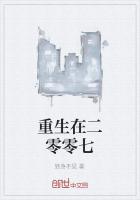To this modern private property corresponds the modern State, which, purchased gradually by the owners of property by means of taxation, has fallen entirely into their hands through the national debt, and its existence has become wholly dependent on the commercial credit which the owners of property, the bourgeois, extend to it, as reflected in the rise and fall of State funds on the stock exchange. By the mere fact that it is a class and no longer an estate, the bourgeoisie is forced to organise itself no longer locally, but nationally, and to give a general form to its mean average interest. Through the emancipation of private property from the community, the State has become a separate entity, beside and outside civil society; but it is nothing more than the form of organisation which the bourgeois necessarily adopt both for internal and external purposes, for the mutual guarantee of their property and interests. The independence of the State is only found nowadays in those countries where the estates have not yet completely developed into classes, where the estates, done away with in more advanced countries, still have a part to play, and where there exists a mixture; countries, that is to say, in which no one section of the population can achieve dominance over the others. This is the case particularly in Germany. The most perfect example of the modern State is North America.
The modern French, English and American writers all express the opinion that the State exists only for the sake of private property, so that this fact has penetrated into the consciousness of the normal man.
Since the State is the form in which the individuals of a ruling class assert their common interests, and in which the whole civil society of an epoch is epitomised, it follows that the State mediates in the formation of all common institutions and that the institutions receive a political form. Hence the illusion that law is based on the will, and indeed on the will divorced from its real basis -- on free will. Similarly, justice is in its turn reduced to the actual laws.
Civil law develops simultaneously with private property out of the disintegration of the natural community. With the Romans the development of private property and civil law had no further industrial and commercial consequences, because their whole mode of production did not alter. (Usury!)
With modern peoples, where the feudal community was disintegrated by industry and trade, there began with the rise of private property and civil law a new phase, which was capable of further development. The very first town which carried on an extensive maritime trade in the Middle Ages, Amalfi, also developed maritime law. As soon as industry and trade developed private property further, first in Italy and later in other countries, the highly developed Roman civil law was immediately adopted again and raised, to authority. When later the bourgeoisie had acquired so much power that the princes took up its interests in order to overthrow the feudal nobility by means of the bourgeoisie, there began in all countries -- in France in the sixteenth century -- the real development of law, which in all countries except England proceeded on the basis of the Roman Codex. In England, too, Roman legal principles had to be introduced to further the development of civil law (especially in the case of movable property). (It must not be forgotten that law has just as little an independent history as religion.)
In civil law the existing property relationships are declared to be the result of the general will. The jus utendi et abutendi [6] itself asserts on the one hand the fact that private property has become entirely independent of the community, and on the other the illusion that private property itself is based solely on the private will, the arbitrary disposal of the thing. In practice, the abuti 1 has very definite economic limitations for the owner of private property, if he does not wish to see his property and hence his jus abutendi pass into other hands, since actually the thing, considered merely with reference to his will, is not a thing at all, but only becomes a thing, true property in intercourse, and independently of the law (a relationship, which the philosophers call an idea). This juridical illusion, which reduces law to the mere will, necessarily leads, in the further development of property relationships, to the position that a man may have a legal title to a thing without really having the thing.
[6] The right of using and consuming (also: abusing), i.e. of disposing of a thing at will.-Ed.
If, for instance, the income from a piece of land is lost owing to competition, then the proprietor has certainly his legal title to it along with the jus utendi et abutendi. But he can do nothing with it: he owns nothing as a landed proprietor if in addition he has not enough capital to cultivate his ground. This illusion of the jurists also explains the fact that for them, as for every code, it is altogether fortuitous that individuals enter into relationships among themselves (e.g. contracts); it explains why they consider that these relationships [can] be entered into or not at will, and that their content rests purely on the individual [free] will of the contracting parties.
Whenever, through the development of industry and commerce, new forms of intercourse have been evolved (e.g. assurance companies, etc.), the law has always been compelled to admit them among the modes of acquiring property.















